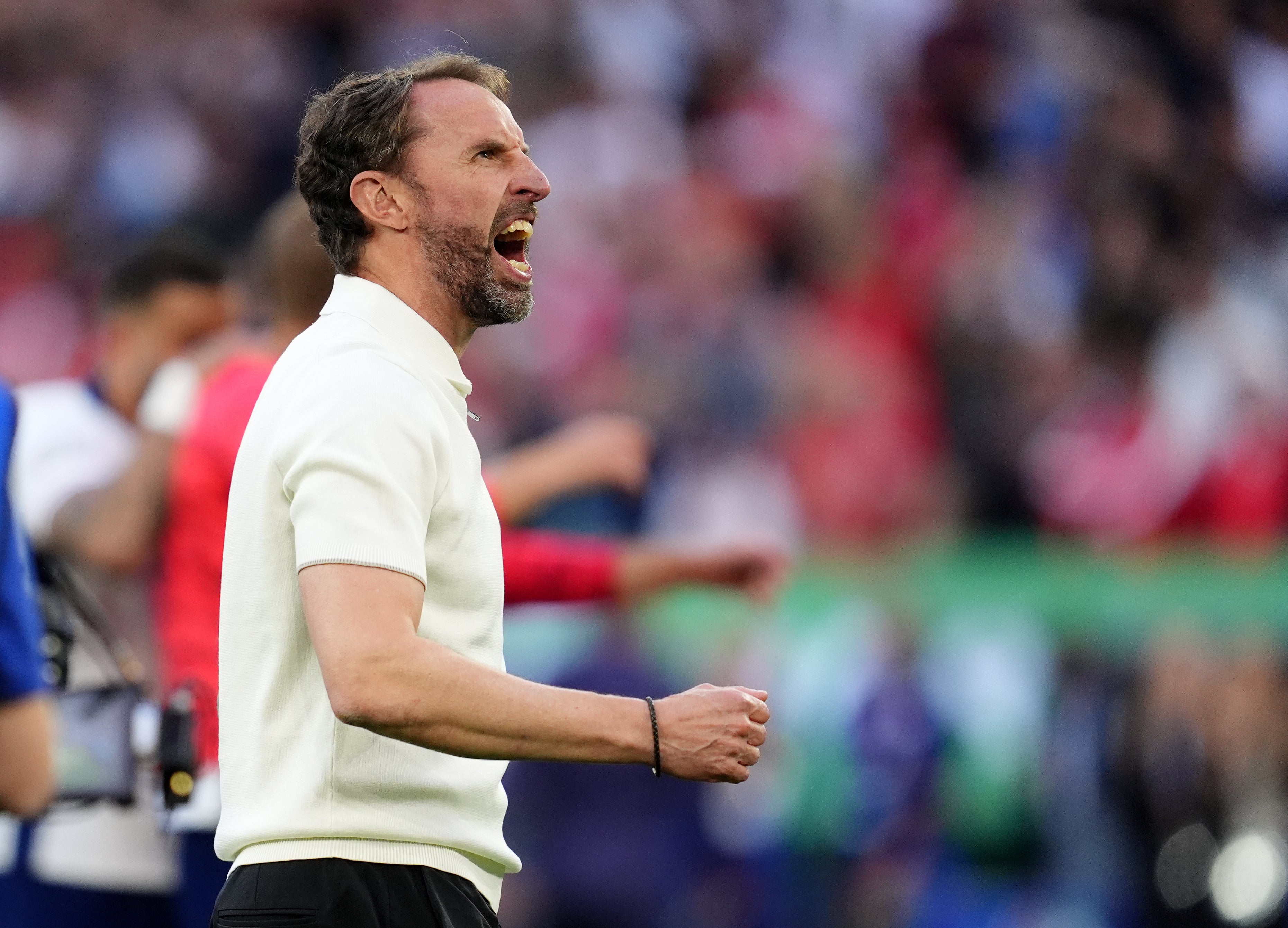Let’s hear it for boring Southgate, a man on whom to model the country
Though unloved by the critics, the England team keeps winning – and Will Gore sees the Three Lions' manager as a footballing Keir Starmer


Bish, bash, bosh, and there we have it – England are into the semi-finals of the European Championships. As if it were ever in doubt (ahem).
Saturday’s penalty shootout in Dusseldorf was as tense and as dramatic as shootouts always are, and the nation’s sigh of relief when Trent Alexander-Arnold slotted in the winning goal was almost audible. And let’s be honest, not one of the England players looked even vaguely like they might Waddle it over the bar.
But if the denouement of the quarter-final against Switzerland was edge-of-your-seat entertainment, almost everything that has preceded it in this tournament has been slump-in-your-seat tedium. Armchair and professional critics alike have had the knives out for Gareth Southgate in particular. He may be England’s most successful manager (Alf Ramsey aside), but his tactics, selection decisions and apparently reactive approach to substitutions have all come under the most intense scrutiny.
Of course, that is the inevitable lot of anyone representing England at pretty much anything. And it’s certainly hard to dispute the view that the Three Lions have been a difficult watch during this edition of the Euros. Ponderous on the ball, ponderous off it, we have been saved by infrequent moments of brilliance.
And yet, somehow, England are in the last four. So perhaps now is the time to show the players – but most of all the manager – some love, and to recognise that boring can be beautiful.
Gareth Southgate is not a man who oozes obvious charisma. At press conferences he speaks with care and wisdom, but rarely with excitement; in post-match interviews he can be a little more emotional, but his equilibrium never seems to be upset. The nearest he’s come in the last few weeks was when he admitted that he’d found it hard not to take criticism of his approach personally. And that was entirely understandable, as much of the opprobrium has been extremely personal.
His tactical approach on the pitch is founded on stability. He shows faith in his players and in his own tactics, giving the team a strength and a self-belief that can get them out of footballing holes. The changes he has made have been modest, but crucially they have incrementally made England better. It might have taken penalties to see off the Swiss, but Saturday’s game was plainly the best of England’s tournament so far, against the best team they’ve played. And when the penalties did arrive, there was a certainty about the men in white that must, at least in part, be attributed to Southgate’s calm planning.
An ageing friend of mine once sent me a postcard from a town on the south coast, where he had spent a week’s holiday. He had, he said, encountered an England from a bygone age – one that was “decent, dull and kind”. And he had had a wonderful time. Southgate seems to embody those same qualities, where dull is a positive antidote to the kind of excitement which in the world of football can flatter to deceive.
Ultimately, outcomes matter most. Southgate has trusted his instincts – even his substitutions, derided though they have been for their lateness, have paid off when they’ve needed to. If slow and steady wins the race, then let’s cheer for slow and steady.
Perhaps the England manager is holding a mirror up to the country, which until last week had been in thrall to – and/or been appalled by – the politics of chaos and division. Keir Starmer, the prime minister who has critics-in-waiting lining up to decry his dullness, is nonetheless like Southgate – a man who puts service above flashiness, results above performance.
In football, as in politics, as in life, things don’t always go quite the way we hope they might. But calm heads and trusting a well thought out plan pay dividends more often than not. So come on Keir, come on Gareth, and come on England!
Join our commenting forum
Join thought-provoking conversations, follow other Independent readers and see their replies
Comments
Bookmark popover
Removed from bookmarks